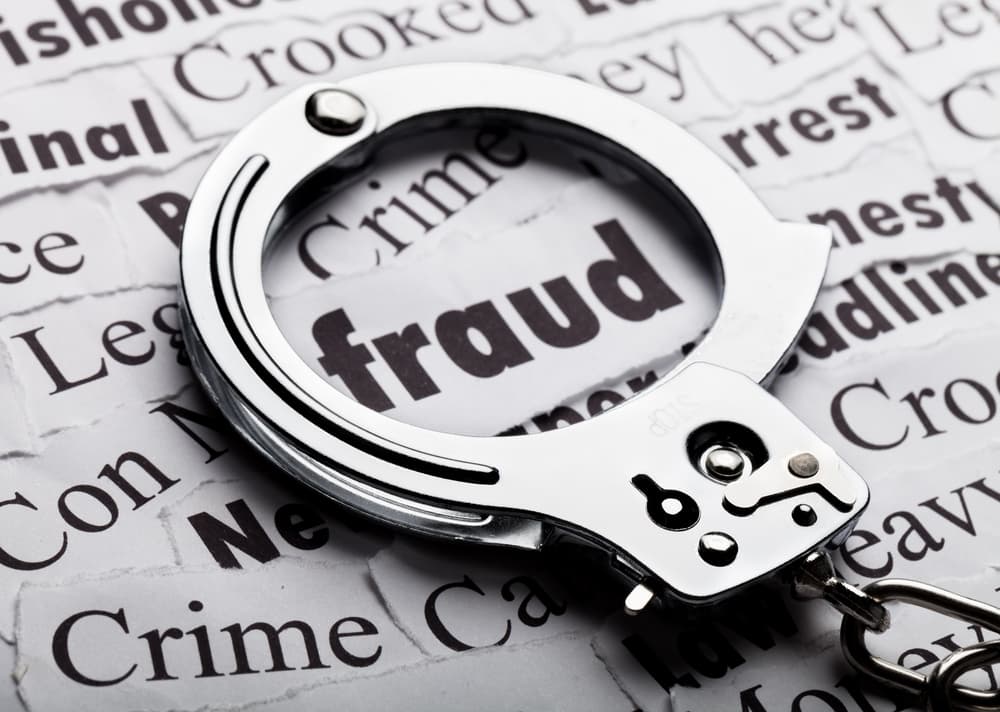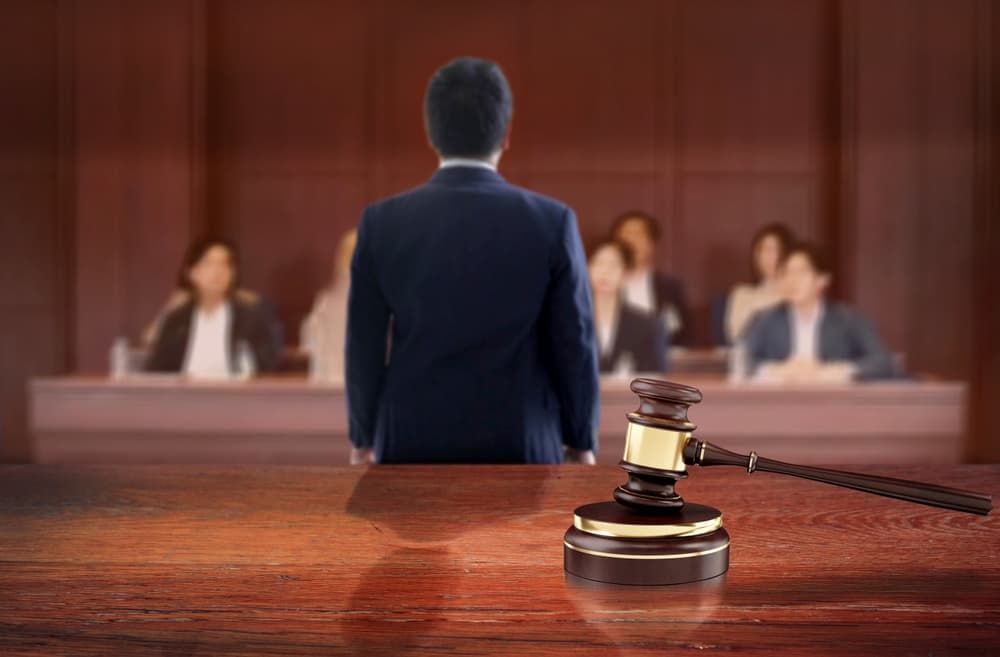Federal white collar crimes include fraud, embezzlement, insider trading, money laundering, and tax evasion. These non-violent offenses often involve financial deception or business misconduct.
If you are currently charged with a federal white collar crime, a knowledgeable Austin white collar criminal defense attorney can assist by analyzing the evidence, identifying weaknesses in the prosecution’s case, negotiating a plea deal, or defending you in court. They can also provide guidance throughout complicated legal procedures, helping to protect your rights and minimize potential penalties upon conviction.
Common Categories of Federal White Collar Offenses

White collar offenses are non-violent crimes that individuals, businesses, or government officials may commit for financial gain. These crimes are often handled at the federal level, especially when they involve large sums of money or affect interstate or international transactions. Below are some of the most common categories of federal white collar offenses you can be charged with:
- Fraud – Fraud is one of the most common white collar crimes. It involves deceiving others to secure unfair or unlawful financial gain. Examples include wire fraud, mail fraud, and securities fraud. In securities fraud, someone might lie about the value of a company’s stock to make a profit. Wire fraud uses electronic communications, like emails or phone calls, to trick people into giving away money.
- Embezzlement – Embezzlement occurs when someone entrusted with managing money or property steals it. For instance, an employee may siphon off funds from their employer’s accounts. This crime is common in corporate settings, government offices, and non-profit organizations.
- Money Laundering – Money laundering is the process of making illegally obtained money appear legal. Criminals do this by funneling money through a series of complex transactions, often using legitimate businesses, to hide their illegal origins. This crime is frequently connected to organized crime, drug trafficking, and other illegal activities.
- Insider Trading – Insider trading is when someone uses confidential information about a company to make a profit on the stock market. For example, a company executive may learn about an upcoming merger and buy the stock before the news goes public, profiting once the stock price goes up. This practice is illegal because it gives an unfair advantage to those with privileged information.
- Bribery and Corruption – Bribery involves offering, giving, receiving, or soliciting something of value to influence the actions of an official or other person in power. Corruption refers to broader unethical or illegal behavior by government officials or others in power. These crimes often involve public officials who accept money in exchange for political favors or contracts.
- Tax Evasion – Tax evasion occurs when individuals or companies intentionally underreport or hide income to avoid paying taxes. It is a serious offense, and those convicted may face heavy fines and imprisonment.
These white collar offenses can lead to severe penalties, including hefty fines and prison time – especially when federal authorities handle them.
Potential Penalties for Federal White Collar Crime Convictions
Federal white collar crime convictions carry serious penalties that vary depending on the nature and severity of the crime. These penalties can include prison time, fines, restitution, and probation. Below are the main types of punishments you may face if convicted of a federal white collar crime:
- Prison Time – Although white collar crimes are non-violent, individuals convicted of these offenses can still face lengthy prison sentences. The amount of time spent in prison depends on factors like the financial loss resulting from the crime and whether the accused (i.e. defendant) has prior convictions. For example, someone convicted of securities fraud or embezzlement may face several years in federal prison, especially if the amount of money involved is significant. Federal sentencing guidelines often recommend harsher penalties for large-scale or repeated offenses.
- Fines – Fines are a common penalty in white collar crime cases and can be substantial. Depending on the crime, a convicted individual may be ordered to pay millions of dollars in fines. For instance, in insider trading cases, the fines can be up to three times the amount of profit gained or loss avoided. In fraud or embezzlement cases, the fines can be even higher. The goal of fines is to penalize the offender and compensate for the financial damage resulting from the crime.
- Restitution – Restitution is a penalty where the convicted person is required to repay the victims for their financial losses. In white collar crime cases, restitution can be ordered in addition to fines. For example, if someone was convicted of defrauding investors, they may be ordered to pay back the full amount that was lost. Restitution ensures that victims can recover some or all of the money they lost due to the crime.
- Probation – In some cases, individuals convicted of white collar crimes may receive probation instead of, or in addition to, prison time. Probation allows the individual to remain in the community but under strict supervision by the court. During probation, the person must meet certain conditions, like regular check-ins with a probation officer, maintaining employment, or refraining from committing any other crimes. Violating these conditions can lead to imprisonment.
Federal white collar crime convictions can result in a combination of these penalties, and the consequences are often severe, even though these crimes do not involve physical violence. Judges consider the scope of the crime, the effect on victims, and the defendant’s role in the offense when determining the appropriate punishment.
What are the Collateral Consequences of Federal White Collar Crime Convictions?

A federal white collar crime conviction can have many collateral consequences, which are non-legal penalties that go beyond fines, prison time, or other official sentencing. These consequences can deeply affect a person’s personal life, career, and financial stability, often for years after they have served their sentence.
- Damage to Reputation – One of the most immediate and long-lasting collateral consequences of a white collar crime conviction is damage to the individual’s reputation. White collar crimes often involve fraud, embezzlement, or corruption, which can lead to a loss of trust from family, friends, and the community. This loss of trust can be difficult to rebuild and may isolate the convicted individual from social and professional networks.
- Difficulty Finding Employment – A federal conviction will appear on background checks, making it very difficult for the individual to find a job after they are released. Many employers, especially in fields like finance, law, or government, are hesitant to hire someone with a criminal record – particularly for crimes that involve dishonesty or fraud. Even positions that do not directly relate to the crime can be hard to secure, as many employers prefer candidates with a clean legal history.
- Loss of Professional Licenses – Many white collar crimes involve professionals in fields that require specific licenses, such as law, accounting, or finance. After a conviction, professional licensing boards often revoke or suspend these licenses, which can prevent the individual from practicing their profession in the future. For example, a lawyer convicted of insider trading may lose their license to practice law, severely limiting their career options.
- Financial Strain – The financial effect of a white collar crime conviction can be devastating. Legal fees for defending against federal charges can be very high, often draining personal savings or assets. In addition, being unable to find work or losing professional licenses can result in long-term financial instability. Those convicted may also lose future earning potential, retirement benefits, and pension plans.
- Effect on Family and Personal Relationships – A federal conviction can also put a strain on personal relationships – especially with family members. The stress of legal proceedings, the time spent in prison, and the stigma attached to a criminal record can cause tension in marriages, friendships, and parent-child relationships. Families may also face financial difficulties as a result of the conviction, adding to the strain.
Common Defenses to Federal White Collar Crimes
When facing federal white collar crime charges, having a strong legal defense is essential. White collar crimes typically involve complex financial transactions, making it possible to challenge the government’s case in several ways. Below are some of the most important legal defenses that your lawyer can raise if you are charged with a federal white collar crime:
- Lack of Intent – One of the key elements the government must prove in most white collar crime cases is intent. In other words, the prosecution must show that you knowingly committed the crime with the purpose of deceiving or defrauding someone. If your criminal defense lawyer can demonstrate that you did not intend to commit fraud, embezzle funds, or engage in other criminal conduct, this can be a powerful defense. For example, if a financial transaction was simply a mistake or oversight rather than a deliberate act of fraud, this may weaken the prosecution’s case.
- Insufficient Evidence – In any criminal case, including white collar crimes, the prosecution must provide strong evidence to prove the defendant’s guilt beyond a reasonable doubt. Your attorney can challenge the quality or quantity of the evidence. For instance, if the prosecution lacks direct evidence linking you to the crime or is relying on circumstantial evidence that doesn’t directly prove your involvement, this can serve as a basis for a defense. The government must meet a high burden of proof, and if they fail to do so, you may be acquitted.
- Entrapment – Entrapment is a defense that arises when law enforcement officials coerce or pressure an individual into committing a crime they otherwise wouldn’t have committed. In some federal white collar crime cases, undercover agents or informants may push someone to engage in illegal behavior, such as insider trading or bribery. If you can show that law enforcement induced you to commit the crime and that you had no previous intent to engage in illegal activity, your criminal defense lawyer can raise an entrapment defense.
- Duress – Another defense is duress, which means you were forced or threatened into committing the crime. For example, if someone threatened to harm you or your family unless you participated in a fraudulent scheme, you can use duress as a defense. However, the threat must be immediate and serious, and you must show that you had no reasonable way to escape the situation.
- Mistaken Identity – White collar crimes often involve multiple people, making it possible that the wrong person may be accused. If you can show that you were mistakenly identified or not directly involved in the crime, this fact can be a defense.
Accepting a Plea Deal Versus Taking a Federal White Collar Criminal Case to Court

When facing federal white collar crime charges, you have two main options: accept a plea deal or take the case to trial. Each choice has advantages and disadvantages, and it’s important to weigh them carefully with the help of an attorney.
Accepting a Plea Deal
A plea deal is an agreement between you and the prosecution. In exchange for pleading guilty to a lesser charge or fewer charges, you may receive a reduced sentence, smaller fines, or other benefits. There are several reasons why you may choose to accept a plea deal in a federal white collar crime case:
- Reduced Penalties – Plea deals often result in lighter sentences than you would receive if found guilty at trial. For example, you may avoid a lengthy prison term or be fined less. This can be especially appealing if the prosecution’s evidence against you is strong and a conviction seems likely.
- Certainty – Trials are unpredictable. Even if you believe you are innocent, there’s always a risk that the jury may convict you. By accepting a plea deal, you know exactly what the penalties will be, allowing you to avoid the uncertainty and stress of a trial.
- Quicker Resolution – Plea deals allow you to resolve the case more quickly than if you go to trial, which can be a lengthy and expensive process. This can help you move on with your life sooner.
However, accepting a plea deal also means giving up your right to a trial, and you will have a criminal conviction on your record, which can have long-term consequences.
Going to Trial
Taking your case to trial in federal court means fighting the charges in front of a judge and jury. This option may be more appealing if you believe you are innocent or if the prosecution’s evidence is weak.
- Chance of Acquittal – If the jury finds you not guilty, you will avoid any criminal penalties. This is the best possible outcome, but it comes with risks, as trials can be unpredictable.
- Defending Your Reputation – Going to trial may give you a chance to clear your name, especially if the charges are unfounded.
However, trials can be costly and time-consuming. If you are convicted, the penalties are often harsher than those in a plea deal.
In deciding whether to accept a plea deal or go to trial, it’s important to consult with a skilled federal defense attorney who can guide you through the decision.
Speak with a Knowledgeable Criminal Defense Lawyer Today
If you are currently charged with a federal white collar crime, it’s essential that you talk with a knowledgeable criminal defense lawyer right away. They can immediately begin an investigation into your case and determine your available legal defenses.
The post What Types of Crimes are Federal White Collar Crimes? appeared first on Lance Kennedy Law.






